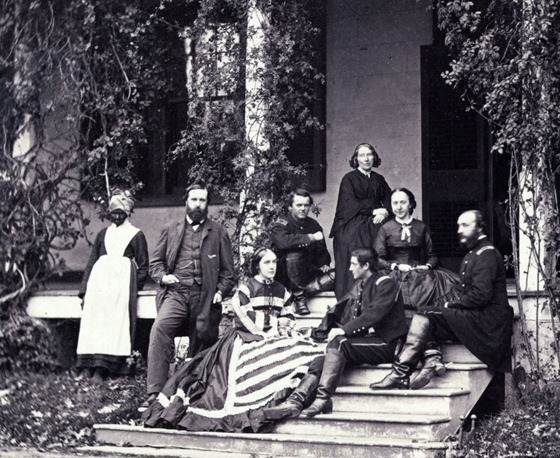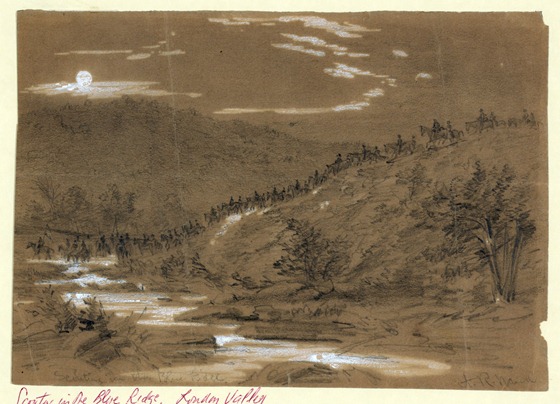Cropped from the photo in Alexander Gardner’s Photographic Sketchbook of the War.
The house of Mrs. Lee, situated in Pleasant Valley, Maryland, was selected by General McClellan, after the battle of Antietam, as a temporary home for Mrs. McClellan, who paid a brief visit to the army. The General spent much of his time here, when not occupied with military matters, and in the vine-clad porch the officers of the Staff whiled away many a pleasant October day. Two of the officers shown in this group were members of General Burnside’s Staff, and one of General McClellan’s. It was intended that General McClellan should make one of the group, and all the necessary arrangements had been perfected by the photographer, when heavy cannonading on the Virginia side of the Potomac, caused by a reconnoitring party of cavalry, drew the General away.
The headquarters were located in a field near this house, and were composed only of a sufficient number of tents to shelter the General and Staff, and the offices of the various departments. A portion of the army was encamped along the base of Maryland Heights and South Mountain, and the remainder was located on the heights back of Harper’s Ferry. Supplies were forwarded over the Baltimore and Ohio Railroad, which afforded excellent facilities for visiting the army, and thousands of the friends of the soldiers found their way to camp. The citizens of Maryland were noted for their hospitality to such visitors, and their generosity to the troops. When the army was on the march, many families stood at their gateways with buckets of water for the thirsty men, and filled the canteens of all who had time to wait. There were very few of the Army of the Potomac who left Maryland and crossed into Virginia after Lee without regretful partings with new made friends, and for many a month thereafter the bivouac was enlivened by the memories and recital of the Marylanders’ welcome.
Library of Congress image.











